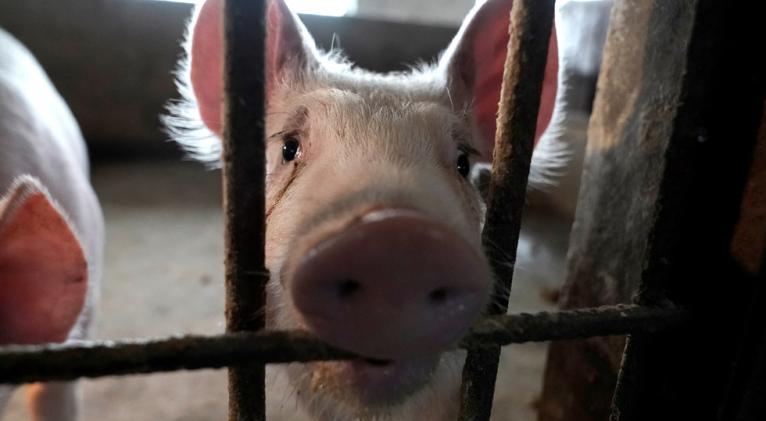Chinese study sounds alarm over new swine flu with pandemic potential
especiales

The World Health Organization (WHO) has warned that, despite the risk posed by the ongoing coronavirus pandemic, “we cannot let our guard down on influenza,” after a report from China raised alarm over a new swine flu.
“We will read carefully the paper to understand what is new,” WHO spokesperson Christian Lindmeier told a Geneva briefing on Tuesday in response to the new research. “[We] need to be vigilant and continue surveillance even in the coronavirus pandemic.”
The remarks came after a study, published Monday, profiled a new flu virus found in Chinese pigs which had mutated and become more infectious to humans, raising concerns of a potential new “pandemic virus” at some point in the future.
Chinese researchers studying influenza viruses among pig populations between 2011 and 2018 conducted 30,000 nasal swabs from animals in 10 provinces – and found 179 swine flu viruses, the majority of which were of a new kind.
The study described pigs as important “mixing vessels” for pandemic influenza viruses, adding that one particular virus, the “G4” strain of H1N1, boasted “all the essential hallmarks of a candidate pandemic virus.”
The newly-identified G4 virus is a recombination of the H1N1 strain identified in 2009 – which led to a major quarantine in China at the time – and a previous strain of swine influenza.
In animal studies, including on ferrets whose immune response can often be quite similar to humans, G4 was found to be highly infectious, replicating in implanted human cells and causing more serious symptoms than expected.
Worryingly, pig factory workers showed elevated G4 levels in their blood, while any immunity in human cells following exposure to seasonal flu provided no protection against G4.
More than one in 10 workers who handled swine had already been infected with G4, according to antibody blood tests conducted by the study authors. To make matters worse, some 4.4 percent of the general population tested had already been exposed, showing that the virus had passed from animal to human – but has yet to transit human to human.
“It is of concern that human infection of G4 virus will further human adaptation and increase the risk of a human pandemic,” the researchers wrote.
Chinese Foreign Ministry spokesman Zhao Lijian said his government would take “all necessary measures to prevent the spread and outbreak of any virus.”
However, at present, there appears to be no imminent threat according to Carl T. Bergstrom, professor of biology at the University of Washington.
“What the paper does do is something important for the epidemiological community: it points to a virus that we need to be keeping a careful eye on,” the scientist tweeted about the new research. “But every indication is that the G4 virus would have to undergo some evolutionary change to spread readily in people, and it may never do that.”
Indeed, the study authors called for “close monitoring in human populations, especially the workers in the swine industry,” but stopped short of calling for any more urgent action.
Sars-cov-2, the coronavirus that caused the worldwide Covid-19 pandemic, is believed to have originated in bats in southwest China before spreading to humans via a wet market in Wuhan where it was first identified. In response to the pandemic, Chinese authorities have introduced stricter controls on the sale of wildlife and meat products.
Also on rt.com Wuhan imposes blanket BAN on wildlife trade & consumption to ‘safeguard public health’
Concerns have already been raised at meat factories across the world after fresh outbreaks of novel coronavirus in Germany, the UK and elsewhere.














Add new comment